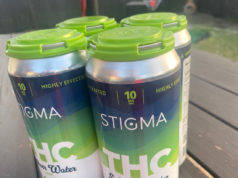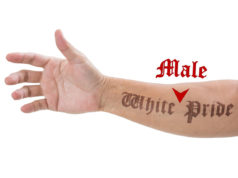 Having survived modern-day slavery — not in Zambia but at the hands of unscrupulous people in this country — Kachepa is now having to deal with the U.S. Department of Homeland Security and struggling to fight free of a governmental Catch-22 called the T-visa that has put him and other former slaves into a form of bureaucratic limbo.
Having survived modern-day slavery — not in Zambia but at the hands of unscrupulous people in this country — Kachepa is now having to deal with the U.S. Department of Homeland Security and struggling to fight free of a governmental Catch-22 called the T-visa that has put him and other former slaves into a form of bureaucratic limbo.
The United States government is coming to grips with the concept that 27 million people worldwide are currently held in slavery. In its attempts to encourage former slaves in the U.S. to assist in the prosecution of human traffickers, the government developed a new three-year visa, called the T-visa, that is supposed to assist former slaves in applying for permanent residency and ultimately, if desired, citizenship. To obtain such visas, trafficking victims must prove that they would suffer extreme hardship or physical harm if returned to their former countries. Kachepa received a T visa, but despite three years of trying — and despite doing everything he can to help in the campaign against slavery — he, like all the other T-visa holders, still hasn’t been approved for permanent legal residency. The problem, Kachepa and his guardians said, is that the government has never issued regulations setting out the process by which T-visa holders can obtain residency.
Without permanent residency status, trafficking victims cannot leave the U.S. and be guaranteed that they can return. For Kachepa, that means he has been unable to travel to Africa — not to Zambia, but to neighboring Zimbabwe — to visit his siblings, whom he has not seen in nine years. The uncertainty of their status also causes other problems and limits the types of benefits that the visa holders can receive.
“He is in limbo now,” said Sandy Shepherd. She and her husband Deetz became Kachepa’s guardians several years ago. “His five siblings thought they would get to see him, but he can’t leave the U.S. and return. We had applied for visas for them to come visit, but like many people in third-world nations, they were denied because the U.S. embassy didn’t believe they would return to Zambia.”
In the meantime, Kachepa is continuing his own battle against slavery. Named as one of Teen People magazine’s Top 20 Teens Who Will Change the World, he testified before a Texas legislative committee on behalf of a bill, which was passed as law in 2003, to provide monetary compensation for victims and more stringent prosecution of alleged traffickers in Texas. He’s been interviewed on network television and works with groups like Free the Slaves to educate the American public about the problem.
“When I tell people that I was a slave, they think I was a slave in Zambia, that I’m here on a refugee visa. But I was a slave here, in America,” said Kachepa. At age 11, he was proud to have been selected as one of the 12 boys to tour with the Zambian A Capella Boys’ Choir. The choir organizers promised to raise money to build schools in Zambia, give the boys an education, send money to feed their families, and pay them a salary.
However, within three months of their arrival, the choir members knew that they had been deceived. Sadly, money paid by churches, schools, conventions, and malls for the choir’s performances, as well as profits from the sale of c.d.’s across the country, was kept by the choir organizers. None of it went toward building schools in Zambia, and the boys received neither salary, education, nor anything else they’d been promised. For two years, Kachepa and other boys were held in servitude against their will by the choir organizers. He was paid only $45 per month, and that was after a Labor Department investigation. “I had to grow up so much. At age 11, I was responsible for cooking my own food, washing my clothes, and ironing my clothes,” he said.
When he left Zambia, Kachepa never imagined he would be separated from his family for this long. “He did well when he thought it would be three years [until he could get permanent residency and return to Africa to visit them]. He had a timeline, but now that is indefinite,” Shepherd said.
Kachepa had enrolled in Stephen F. Austin State University in Nacogdoches, but transferred to Tarrant County College in 2006 so that he could work on the residency application and continue speaking out against the worldwide atrocity of slavery.
Although he is discouraged by the Homeland Security bureaucracy, Kachepa has renewed his efforts to educate the public on modern slavery, which generally is defined by activist groups and others as coercing people who aren’t free to leave into working without compensation. “He will be on the cover of Christianity Today in March, and he attended the preview screening of Amazing Grace, a movie about slavery in England,” said Shepherd. (For a review of Amazing Grace, see page 25.) Working with groups such as Free the Slaves has become a big part of his life. He helped one group produce a video on human trafficking and sent a link to the video to his family in Zambia. His siblings went to an internet café and were able to watch it. “But my brother didn’t really understand it,” Kachepa said. “What is slavery? Because he hasn’t seen it, it doesn’t exist [for him].”
Like Kachepa’s brother, most Americans don’t see slavery’s pervasive influence on the U.S. economy. “It is estimated that 50 percent of the chocolate imported comes from slave labor. But people don’t see this as a current problem,” said Shepherd.
Kachepa hopes to change that. “If I didn’t believe in freedom, I wouldn’t be speaking out. I’d just go be the person I want to be,” he said. “Here is the tricky part. The more we raise awareness, the more devious traffickers will become. They get people excited about the new opportunities in America.”
When the slaves become ill, they are easily replaced because they were so cheap to purchase. Modern-day slavery victims have become disposable people to traffickers. “There is no value to human life in the mind of a human trafficker,” said Shepherd.
“But we have to keep trying,” Kachepa countered. “If we get people taking action, they will get the governments involved. It takes both.”
Shepherd and Kachepa are also advocates for Fair Trade chocolate and coffee, Rugmark carpets, and other goods that are certified to be sweatshop-free, non-slave made. “The more you find out, the more you realize that we have power as consumers to hold companies accountable,” she said. Giving people alternatives and information is their shared mission.
The release of Amazing Grace has given fresh life to the battle. “I’m excited about the possibilities that the movie … gives us to talk to people connecting the past to the present and to make people aware that there are more people enslaved today than in the transatlantic slave trade time,” said Shepherd.
Kachepa said it’s a good movie, “but I hope people know that the battle is not over.”











